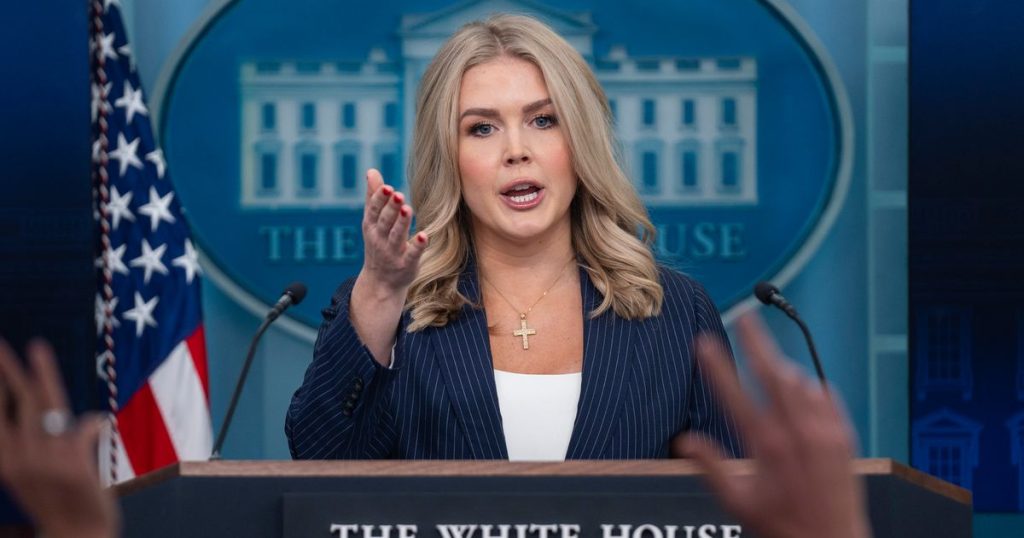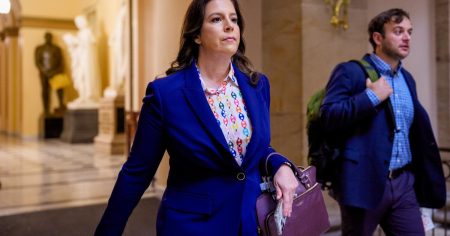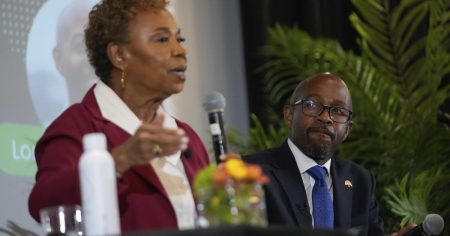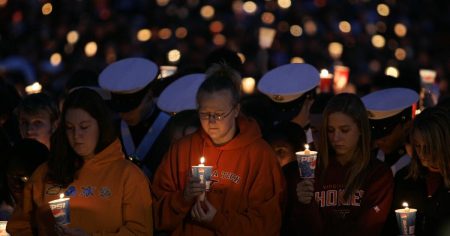White House Press Secretary Karoline Leavitt has come under scrutiny for her decision to restrict press access to The Associated Press (AP) following the news organization’s refusal to comply with an executive order issued by President Donald Trump. The order in question mandates the renaming of the Gulf of Mexico to the Gulf of America. Leavitt defended her actions during a press conference, stating that she had been clear from the start about her intention to hold accountable any outlet she deemed to be spreading misinformation. “If we feel that there are lies being pushed by outlets in this room, we are going to hold those lies accountable,” she said. “It is a fact that the body of water off the coast of Louisiana is called the Gulf of America,” she added, emphasizing the administration’s commitment to this change, both domestically and internationally.
Leavitt’s comments came after the AP refused to adhere to Trump’s executive order, which was signed on January 20. The AP, a nonprofit news agency established in 1846, argued that the name change was not universally recognized, particularly by other countries and international bodies. The organization emphasized its responsibility to use place names that are globally recognized and accessible to its diverse audience. In a letter addressed to White House Chief of Staff Susie Wiles, AP Executive Editor Julie Pace criticized the White House’s decision to restrict access to its reporters, calling it a “clear violation of the First Amendment.” Pace argued that the actions were retaliatory and intended to punish the AP for its editorial choices, which she said was a fundamental breach of press freedom.
The White House’s decision to bar AP reporters from press events, including an Oval Office event and an evening briefing in the Diplomatic Room, has sparked widespread concern among media organizations and First Amendment advocates. The AP’s refusal to comply with the name change was rooted in its commitment to journalistic accuracy and global readability. The organization noted that the Gulf of Mexico is an internationally recognized body of water, with Mexico and other nations not bound by the U.S. executive order. As such, the AP argued that it would be misleading to unilaterally rename it without international consensus. Leavitt, however, remained unmoved, framing the issue as a matter of factual accuracy and adherence to the administration’s directives.
The controversy has also drawn attention to the role of technology giants like Google and Apple, which have partially complied with Trump’s order. Both companies have agreed to change the name of the Gulf of Mexico to the Gulf of America on their U.S. maps, but they have chosen to retain the original name for users in Mexico and other parts of the world. This dual approach reflects the complexities of navigating a globalized digital landscape, where decisions about naming and labeling can have far-reaching implications. Leavitt criticized these companies for not fully embracing the name change, suggesting that their decision undermine the administration’s efforts to promote the new name both domestically and internationally.
The AP’s stance has been supported by a broader coalition of media organizations and civil liberties groups, which view the White House’s actions as an overreach of executive power and a direct threat to press freedom. The First Amendment explicitly protects the press from government retaliation, and Pace’s letter to the White House made clear that the AP is prepared to “vigorously defend its constitutional rights” in court if necessary. The situation has raised questions about the Trump administration’s approach to media relations, particularly its willingness to restrict access to press events as a means of exerting control over the narrative.
As the debate over the Gulf’s name and press access continues, it has sparked a broader conversation about the role of the media in holding power accountable and the challenges of maintaining journalistic independence in the face of government pressure. The AP’s refusal to comply with the executive order, despite the consequences, underscores the importance of a free press in democracy. Meanwhile, the administration’s insistence on renaming the Gulf of Mexico highlights the tensions between national sovereignty and international cooperation in an increasingly interconnected world. This incident serves as a reminder of the delicate balance between governmental authority and the principles of a free and independent press.









